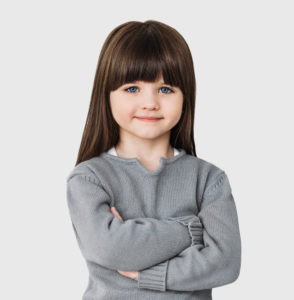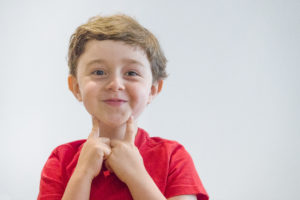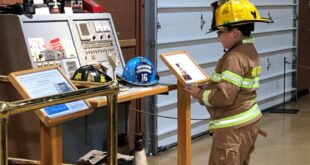Long before becoming a parent, I was familiar with the term “terrible twos”; but after becoming a parent, I realized that it’s the “threenagers” and “fournados” that can really make you second guess your parenting ability. Emotions emerge at these ages and need managing. Independence becomes a new theme. Developmental milestones come fast and furious, as those uncertain toddlers bloom into bigger, more distinct personalities and get ready to take on the world … and school.
Meeting milestones

Three- and 4-year-old children are a wonder to behold. In such a time of rapid change, many parents look for reassurance that their little ones are still meeting typical developmental milestones — and to learn what they can do to support healthy child development. If there are delays, catching them early and getting intervention services is key.
Jane Squires is a renowned expert in the field of early intervention/early childhood special education, developmental screening and early identification of delays. She is lead author of the “Ages & Stages Questionnaires, Third Edition” (ASQ-3); and the “Ages & Stages Questionnaires: Social-Emotional, Second Edition” (ASQ: SE-2). She stresses the importance of involving parents in monitoring young children’s development. After all, who is more of an expert on your child than you? I asked Squires for advice on what parents should know about the development of 3- and 4-year-old children, particularly with regard to school readiness.
What to look for
What sorts of developmental milestones should parents be noticing, when it comes to typically developing 3- and 4-year-old kids?
Some physical and cognitive markers for age 3: Does the child climb well? Run easily? Pedal a trike? Walk up and down stairs one foot per step? Can the child play make-believe? Work toys with switches and buttons? Unscrew lids and work door handles? Do puzzles with three or more pieces? Turn book pages one at a time? Stack a tower of blocks? Draw/copy a circle?
At age 4: Does the child hop on one foot? Catch a bounced ball? Name some colors and numbers? Draw a person with two or more body parts? Use scissors? Begin to understand the concept of time? Play board or card games? Start to copy letters? Predict what may happen next in a story?
Communication skills for 3-year-olds: Can the child follow two- or three-step instructions? Name familiar objects? Talk well enough to be mostly understood by strangers? State their name and age? Understand the difference between words like “under” and “in”?
At age 4: Does the child know some basic grammar such as when to use “he” and “she”? Recite a poem or sing songs from memory? Say their first and last names?
 Social-emotional development
Social-emotional development
Children’s social-emotional skill development and competence is equally important. Does the 3-year-old child copy friends and adults? Show affection for others without prompting? Display a range of emotions? Dress and undress self? Is the child able to take turns in games? Understand concept of “mine” and “theirs”? Separate easily from mom or dad? Stay with an activity for at least five minutes?
At age 4: Does the child like to play with other children? Have favorite games and playmates? Start to understand danger and stay away from dangerous things? Show concern for someone who is hurt or upset? Love silly jokes? Like to try new things? Exhibit creativity and imagination? Stay with an activity for at least 10 minutes? Begin to control feelings of frustration?
“Checking in on progress in these areas is an essential part of preparing for school,” Squires says, “Self-regulation and other social-emotional skills that help the child cooperate and listen in the classroom are often more predictive of academic and job successes than pre-academic skills. Preschool teachers as well as screening assessments can help with measuring these skills and milestones. The most important thing is seeing where the child is and taking them to the next step.”
How parents can help
Reaching that next step can be fun — because you can get there in large part through play. Be present and engaging with your child. Read to them, interact, create things together. Take them places. Squires suggests some simple activities parents can try with their children to enhance social-emotional development.
With a 3-year-old:
• Encourage your child to identify/label his emotions and those of others.
• Play games that involve taking turns (such as Follow the Leader) and following simple rules (such as Red Light, Green Light).
• Stage a pretend argument between dolls and talk with your child about what happened and how to work through problems.
• Tell a favorite story and see if your child can tell you how the characters in the story felt.
• Get down on the floor and play. Follow your child’s lead and ideas.
• Tell silly jokes and simple riddles. Laugh with your child.
• Let your child know every day that they are awesome and loved.

With a 4-year-old:
• Provide opportunities and supplies for creativity and inventiveness.
• When doing housework or yardwork, give your child a job to do on his own such as emptying a wastebasket or watering a plant.
• Have simple props for make-believe play such as for a store or a school.
• Encourage independence by letting your child fix her own snack or choose her own clothes.
• Take your child to a store, a restaurant and the library. Explore new places and talk about how people are alike and how they are different.
• Make puppets out of Popsicle sticks by gluing on paper faces. Put on a show about two children who meet and become friends.
• At least once a day, be sure to hug, cuddle and praise your child for new skills, independence, creativity, expressing emotion and sharing.
Free screenings available
Squires offers parents an opportunity to try an ASQ developmental screener for free. The developers are continually conducting research to keep data as comprehensive as possible and to ensure the screening continues to be effective and family friendly.
Parents of children ages 1 month to 7 years can go online at agesandstagesresearch.com (no obligation, and no personal names or addresses are collected). Each questionnaire takes about 10 to 15 minutes to complete. Answer based on your observations of your child in natural environments, looking at communication, gross motor, fine motor, problem-solving and personal-social skills. You can see a copy of your child’s screening through email or by download at the end of the session and get more play and learning activities that fit your child’s age as well as suggested resources if you have concerns about risk for delay.
Be confident, parents
Parenting a preschooler can be tremendously demanding and overwhelming but entertaining and thrilling, and day-to-day you might never be sure just what you’re going to get.
It’s natural for parents to want to know whether their child is on track and whether they should be doing anything differently to give them the best prospects for the future. Know that you’re not alone. And know that if you’re still reading this, you are a parent who is invested and engaged in your child’s well-being, making that little one every bit as lucky as they are loved.
 Baltimore's Child Baltimore's Child
Baltimore's Child Baltimore's Child








